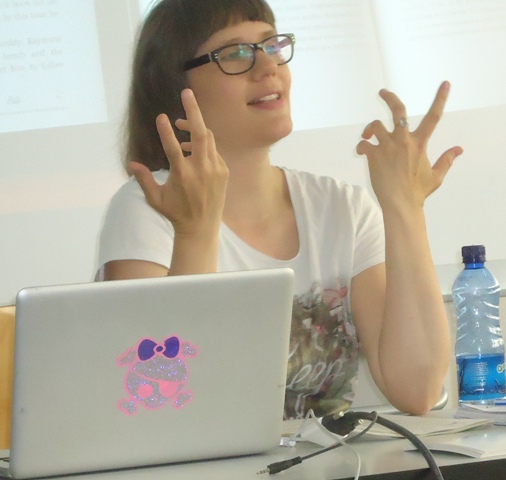By Ogova Ondego
Published May 3, 2014

The future of the world may be digital, but revelations in 2013 by Edward Snowden of rampant global surveillance by National Security Agency of United States of America has shaken the faith of the world in the internet and created concern over issues like privacy and security of internet users and storage and control of their data, a two-day electronic publishing training for players in the book market in Kenya has been told.
RELATED: Ethiopia Establishes Her Own Academy of Sciences
 The workshop–that brought together publishers, editors, authors, designers, librarians, researchers and literary festival organisers to interact, exchange ideas and share experiences aimed at improving the publishing landscape in Kenya–looked at the challenges, opportunities and emerging trends in e-publishing around the world. The facilitator of the Goethe-Institut-organised training that was held May 2-3, 2014 in the Kenyan capital, Nairobi, was Nikola Richter from Germany .
The workshop–that brought together publishers, editors, authors, designers, librarians, researchers and literary festival organisers to interact, exchange ideas and share experiences aimed at improving the publishing landscape in Kenya–looked at the challenges, opportunities and emerging trends in e-publishing around the world. The facilitator of the Goethe-Institut-organised training that was held May 2-3, 2014 in the Kenyan capital, Nairobi, was Nikola Richter from Germany .
Though the gathering expressed concern over the shrinking market of the printed book, they were nevertheless upbeat about the growing market of the e-book. For instance, Amazon sold more e-books than printed ones online in 2011. By the end of 2013, about one-third of humanity–2-5 billion–was said to b using the internet, a connection machine that is revolutionising society, creating new production and distribution channels of culture, and creating access to education, knowledge and economic possibilities.
RELATED: BBC World Service collaborates with Zain for easy WAP content access across Africa
 Text, that took a new turn from its use on stone tablets and papyrus scrolls when Johannes Gutenberg invented the first printing press in Germany in 1450, received a further boost when British programmer Tim Barners-Lee developed the idea for the world wide web in 1989.
Text, that took a new turn from its use on stone tablets and papyrus scrolls when Johannes Gutenberg invented the first printing press in Germany in 1450, received a further boost when British programmer Tim Barners-Lee developed the idea for the world wide web in 1989.
Though the combination of text and code has resulted in the electronic publication (ePub), the terrain is still far from being level despite the growing market share of the e-publications. European legislation, for instance, regards e-publications as files and software and, as such, cannot enjoy any reduction of Value Added Tax as do printed books.While Europe charges 7% VAT on the traditional book, United Kingdom charges e-books 20% VAT and Germany 19%.
Though the primary focus of the gathering was for experts to brainstorm on how to venture into e-publishing, it also ended up discussing pertinent issues such as copyright, privacy, security, flow of information, taxation, and how the policies of the government in Kenya affect not just the book market in the country but also the reading culture and the the education system.
RELATED: More Than Half of LinkedIn and Twitter Users In Kenya Are Dormant
It was noted with concern that almost every publisher in Kenya is in the lucrative school text book market and that only a handful are involved in the ‘reading-for-leisure’ sector.
For e-publishing to take off in Kenya, the market set up and the government policy and involvement in the book market has to be addressed. The government sets aside Sh3.5 Billion annually for text books to be used in the 28,500 primary schools in the country.
Among the institutions represented in the Goethe-Institut-organised training were ComMattersKenya, Contact Zones NRB, Jomo Kenyatta Foundation, Kenya Association of Librarians, Kenya National Library Services, Kenya Publishers Association, Kwani Trust, Native Intelligence, Presbyterian University, Story Moja, Twaweza Communications, Technical University of Mombasa , University of Nairobi and Wajibu Online Magazine.





